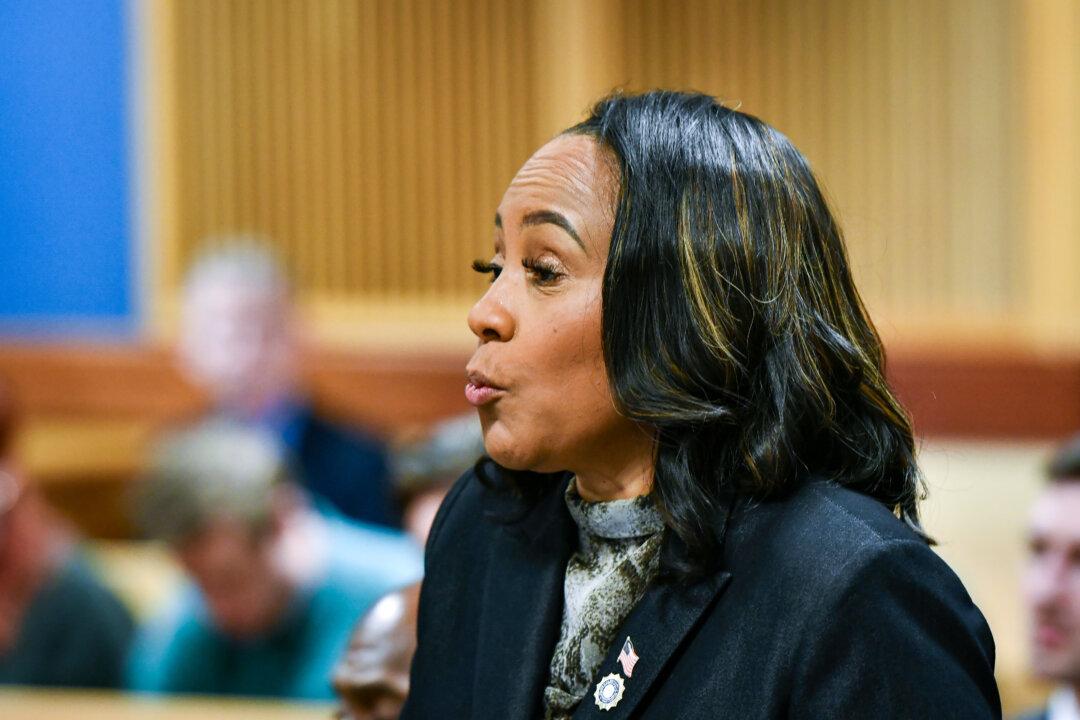Fulton County District Attorney Fani Willis filed a lengthy response to the allegations lodged by Trump co-defendants, arguing no evidentiary hearing should be held in response to the defendants’ “salacious” allegations in the “meritless” motions to dismiss the high-profile election case.
In the 176-page filing, Ms. Willis affirms that she and special prosecutor Nathan Wade have had a personal relationship, and rejects the claim of a conflict of interest that would disqualify Ms. Willis or Mr. Wade from the case.





